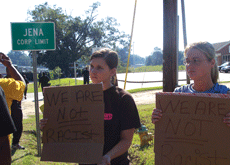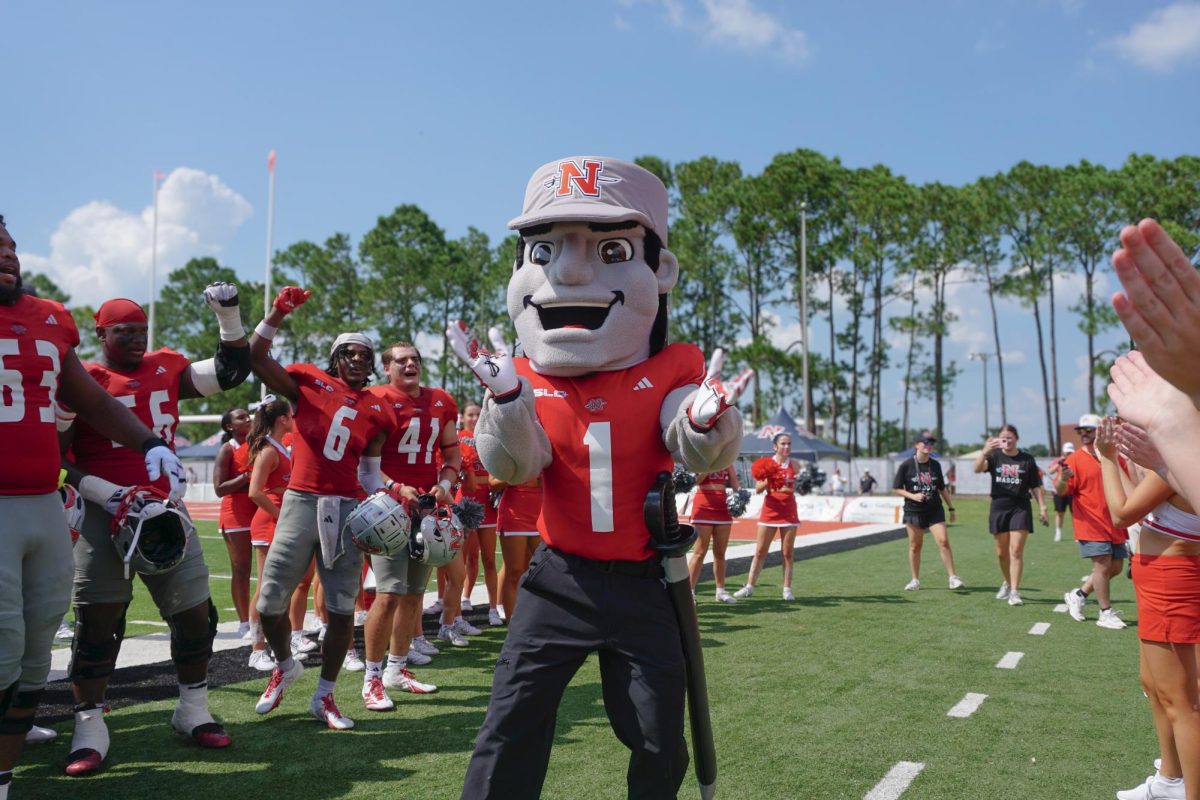From all across the country, tens of thousands of protesters flooded the small town of Jena Sept. 20 to protest the conviction and sentencing of Mychal Bell, one of the defendants in the “Jena Six” case. The protesters, including students from Nicholls, came from as far as California and Chicago to voice their objections to what they see as an injustice in a town that is 85 percent white.
Bell, who is still being held despite his convictions being overturned by an appellate court last week, was scheduled to be sentenced up to 22 years for his participation in a school fight.
The fight was the latest in a series of events of escalating violence that began when black students tried to sit under a tree usually reserved for white students.
The next day three nooses were hung on the tree, according to students. The offenders were reportedly suspended for three days, against the wishes of the no former principal, who wanted to expel them.
Many black Americans, many of whom remember or have seen photos of the Jim Crow era, were infuriated that an incident like this could be swept away in 2007.
“Hate crimes are not pranks,” the Rev. Jesse Jackson, American civil rights activist and Baptist minister, said.
According to Jackson, Reed Walters, the District Attorney of Jena, visited the high school to separate the white students from the blacks. He then told black students he could “end their lives with the stroke of a pen.”
The protesters flowed into the small town of Jena, outnumbering the 2,971 citizens, to demonstrate their solidarity and support of Bell and the other Jena 6 defendants.
“These kids that got locked up could be anybody in the nation. It could be me or my friends.” Jose Massingue, a second-year law student from Loyola University New Orleans, said. “I would want my country to support me.”
A second-line band implored the authorities to “Let my people go.” On the steps of the courthouse where Bell is being held, Elaine Brown, former Black Panther chair led protesters in chants of “No justice, no peace.”
“Black people are 13 percent of the general population but 65 percent of the prison population,” Brown told protesters.
As supporters, including Steve Harvey and Al Sharpton, crowded around the steps of the courthouse, volunteers collected donations for Bell’s bail. The crowd raised more than $20,000 that will be used for his bail, if it is set.
Chris Turner, business senior from Birmingham, Ala., said he felt very strongly about attending the event. “It’s a must that we show support,” Turner, who is a member of the Nicholls’ chapter of Omega Psi Phi, said. If it’s an African-American movement and we’re an African-American organization, it’s a must that we show support.”
Absent from the day’s events were Jena’s residents, who left little evidence of themselves besides the no parking signs posted at almost every business. Those who did show support for the cause were leery of giving their personal information because of fear of reprisal.
“I would rather not give my last name,” Jamie, a white resident of Jena, said. “One of the witnesses (Jessica Oliver) has been harassed and put on the Internet and everything.”
After the rally in Jena, the NAACP held a town hall meeting in at the Holiday Inn in Alexandria, about 40 miles way, to discuss educational and justice disparities in America.
Cathy Obisa, a constitutional law scholar with the NAACP, said though black students are 47 percent of the student population in Louisiana, they are 75 percent of all expulsions.
“That’s true (that) there is no child left behind,” Obisa said. “They’re almost equally being screwed.”
Damon Hewitt, assistant counsel at the NAACP Legal Defense and Educational Fund, said from 1974 to 2004, suspensions have doubled, suggesting an underlying problem in the way students are treated.
“There are Jenas all over the country,” Hewitt said. “Punishment is the easy way out – discipline is hard.”
Michael Baisden, who was key in spreading the word about the Jena 6 before national media picked up the story, held his nationally syndicated radio show on Main Street in Alexandria. Frankie Beverly, among others, performed.
Ice Cube, Dick Gregory and Al Sharpton attended, along with Mychal Bell’s father, Marcus Jones.
Jones expressed gratitude to the thousands of people who came in support of his son.









